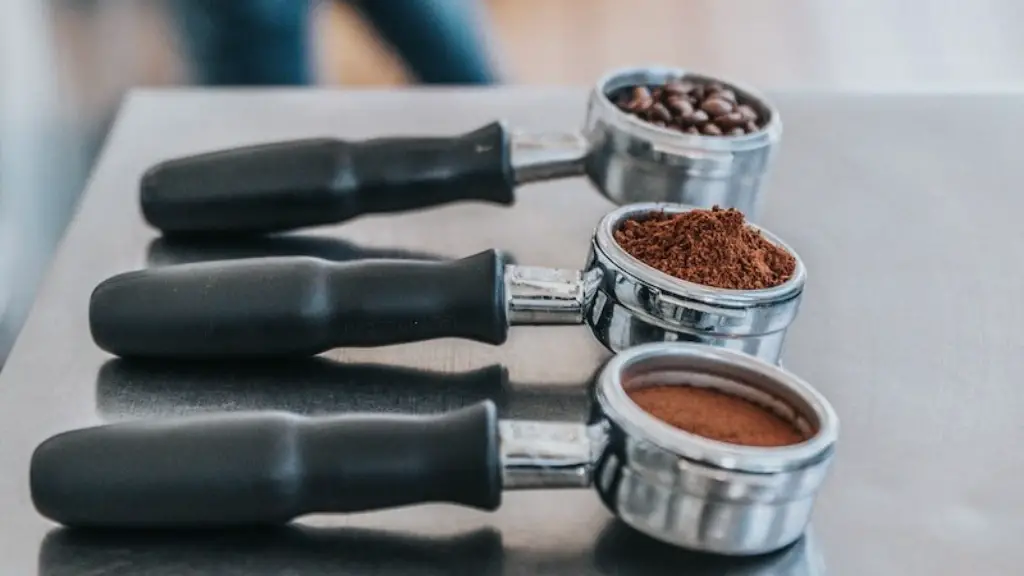No matter how exhausted you are, caffeine is hard to resist. But when you are pregnant, it is best to limit your daily intake of caffeine. Unless you abstain from it completely, your caffeine intake could affect the health of your baby. While both tea and coffee contain caffeine, there are some important differences between the two that you should be aware of.
Caffeine is a stimulant found naturally in tea and coffee beans. It is absorbed quickly by the body and passes through the placenta to the fetus. Excessive amounts of caffeine can interfere with the process of calcium absorption, leading to low birth weight and even fetal death. For that reason, it’s important to keep your caffeine intake within the recommended guidelines while you are pregnant.
The American College of Obstetricians and Gynecologists (ACOG) recommends that pregnant women limit their caffeine intake to less than 200 mg per day. According to this recommendation, a cup of tea should be limited to no more than two. Many teas contain less caffeine than coffee, with a variety of options that contain no caffeine at all. For example, herbal teas, such as chamomile, contain no caffeine.
Similarly, coffee contains more caffeine than tea, but there are also coffees with no caffeine. People opting for decaffeinated coffee may still experience some level of caffeine several hours later, so it is important to read the label for exact amounts. The ACOG suggests that pregnant women limit their caffeine intake from all sources to not more than 200 milligrams per day. That’s equivalent to about one 12-ounce cup of regular coffee, or two 10-ounce cups of decaffeinated coffee.
Overall, it’s best to limit the amount of tea and coffee you drink while pregnant, but a cup or two of decaffeinated coffee or tea per day is generally safe. Drinking more than 200 milligrams of caffeine daily is not recommended, since this could increase the risk of miscarriage, preterm delivery and low birth weight. Additionally, it’s important to note that even decaffeinated tea and coffee can contain additional components that could pose a risk to the baby, so it’s best to be cautious.
Effects of Caffeinated Coffee and Tea on the Baby
Even though limited caffeine consumption is generally considered safe during pregnancy, too much caffeine has the potential to harm the mother and the child. Excessive caffeine can cause irritability, restlessness and insomnia, particularly in the third trimester. Caffeine can also cause an increased heart rate, which can lead to high blood pressure and increased risk of premature birth. Other studies have suggested that excess caffeine can also cause birth defects.
In addition, too much caffeine can also lead to weight loss and dehydration, which can put stress on the mother’s body and disrupt nutrient flow to the baby. For example, drinking too much caffeine might lead to the fetus being malnourished and underweight, or lead to the placenta detaching which can cause a miscarriage. It is important to know your limits and be aware of the risks associated with consuming too much caffeine while pregnant.
Alternatives to Tea and Coffee
For those trying to avoid the potential risks associated with caffeine, there are plenty of alternatives to tea and coffee. For example, a great zero-calorie, caffeine-free option is water – drinking plenty of it will not only help to keep you hydrated, but it is also essential for nourishing the baby. Additionally, consuming foods that are high in electrolytes, such as bananas, oranges and avocados, can help to keep you hydrated and provide the vitamins and minerals needed during pregnancy.
Another healthy source of fluids is herbal teas. Most herbal teas are naturally caffeine-free and are full of antioxidants, vitamins and minerals. For example, chamomile tea is believed to be soothing to the digestive system and can also help to reduce stress, while spearmint tea is known to improve the digestive system. Additionally, some herbal teas are believed to be rich in iron, calcium, potassium, magnesium and zinc.
If you do opt for tea or coffee, there are ways to enjoy it and still ensure a safe pregnancy. Decaffeinated beverages are a great option because they contain less caffeine and eliminate the potential risks associated with caffeine consumption. However, it is important to check the label to make sure that there is no caffeine left after the decaffeination process.
Caffeinated Food and Drinks
It’s not just tea and coffee that contain caffeine – there are a number of other foods and drinks that contain it, such as chocolate and certain energy drinks. When it comes to pregnant women, it’s important to note that some of these foods and drinks can contain a large amount of caffeine, and it’s important to monitor and limit intake. For example, a single serving of an energy drink can contain up to 80 milligrams of caffeine, which is more than the recommended daily limit.
Additionally, the caffeine content of chocolate can vary depending on the type and amount consumed. For example, a single-serving bar of dark chocolate can contain up to 20 milligrams of caffeine, which can add up if you’re having multiple servings. On the other hand, some types of chocolate, such as white chocolate, are caffeine-free.
Finally, it’s important to monitor your caffeine consumption from all sources. For example, if you are regularly drinking caffeinated beverages throughout the day, that could add up to more than the safe limit of 200 milligrams of caffeine. For that reason, it’s important to be mindful of how much you are consuming and keep it within the recommended guidelines.
Making Caffeine-Reduced Drinks at Home
For those wanting to reduce their caffeine consumption while still enjoying a cup of tea or coffee, there are a few simple ways to do so. For tea, start by using fresh, high-quality tea leaves and make sure they are the same size. Additionally, brewing the tea for shorter periods can reduce the amount of caffeine. For coffee, there are a few ways to reduce the amount of caffeine, such as grinding the beans coarsely, reducing the amount of water used, or using percolating methods.
Another way to reduce your caffeine intake is to make coffee at home using a reusable filter. This method uses a paper filter or sponge to filter out the caffeine before it enters the coffee. Additionally, using cold-brew methods can reduce the caffeine content when making coffee at home. Finally, the best way to reduce the amount of caffeine in tea or coffee is to switch to decaffeinated. This process involves either steaming or adding a chemical solution to the beans or leaves, which removes the caffeine without changing the flavor.
Conclusion
Overall, it is recommended that pregnant women consume no more than 200 milligrams of caffeine per day. Tea and coffee contain varying amounts of caffeine, and it is important to read labels to ensure that the amounts are within the recommended guidelines. Additionally, there are a number of alternatives to tea and coffee, such as water, herbal teas and eating foods high in electrolytes. For those who are looking to reduce their caffeine consumption while still enjoying the flavor of tea or coffee, there are simple methods that can be done at home. Ultimately, it is up to the pregnant woman to determine what is best for her and her baby.




